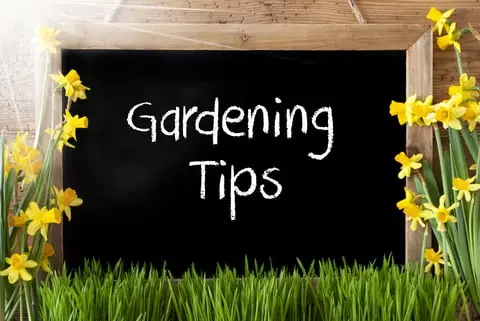As our gardens spring back to life with the warmer weather of Spring and Summer, a new excitement emerges. We look forward to getting outside and tending to, or maybe expanding, our gardens with new flower and vegetable plants. But as the temperatures climb even higher, your garden needs a bit more attention. Between your plants and soil drying out in the high temps, overgrowth, weeds and damaging bugs, you will need a plan to keep your gardens looking fresh and healthy without spending long, hot hours doing manual labor. Follow our summer gardening tips to keep your garden in shape this summer.
Prune Your Plants.
Pay attention to the shape your garden is in. It’s important to keep an eye on damaged flowers to promote healthy growth. For perennials, deadheading will encourage a second growth after the initial four to eight-week growth period. For annuals, deadheading will ensure new, fresh growth on these plants that generally last all season long. If you find your annuals are really suffering from the heat, cut them back four to six inches and you should see new fresh growth in no time.
Know when to water, and how much to water.
There certainly is no exact science to watering plants, however it is important to make sure you are not under- or over-watering your plants. You should plan to water you plants early morning or early afternoon if possible.
There is often a debate about whether you should water in the evening… the reason some say not to water in the evening is because once temps start to cool down, the water has less of a chance to evaporate. This will often lead to mildew which can kill your plants.
Plan to water your plants every day in the warm weather if needed. You can test the moisture in your soil by sticking your finger in the soil up to your middle knuckle—if the soil is moist, you can forego watering. If the soil is dry, then you know you need to water.
It’s important to note that container plants will need watering more often as they dry out faster.
Fertilize your plants to keep them healthy.
After giving your plants a good watering, give them a healthy dose of fertilizer to provide some much-needed nutrients in the heat. Note: when in the middle of a heat wave, with temperatures over 85 degrees for more than a few days, forego the fertilizer. The high temps will often cause some plants to go dormant, and they will not need the added nutrients.
Add mulch to your flower beds.
A 2–3-inch layer of mulch will conserve water, keep your soil moist, and assist in cutting down on weeds.
Eliminate pests.
There are some bugs that wreak havoc by eating plants, causing damage and rot. You can help to eliminate this problem with a homemade, non-toxic mix of 1 TBSP cooking oil, mixed with a squirt of dish soap and water in a spray bottle. Be sure to spray towards the steps of the plants to combat the bugs where they hide.
Being consistent with the care of your garden will ensure a healthy-looking garden throughout the entire season. If you have any questions about the care of any specific plants, ask your local garden center for guidance.

